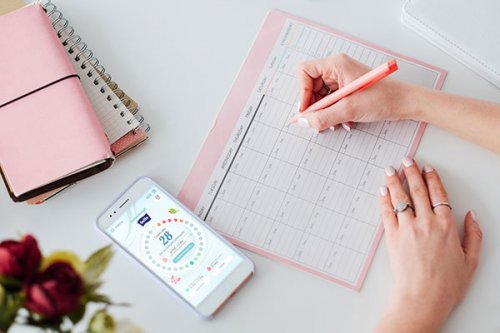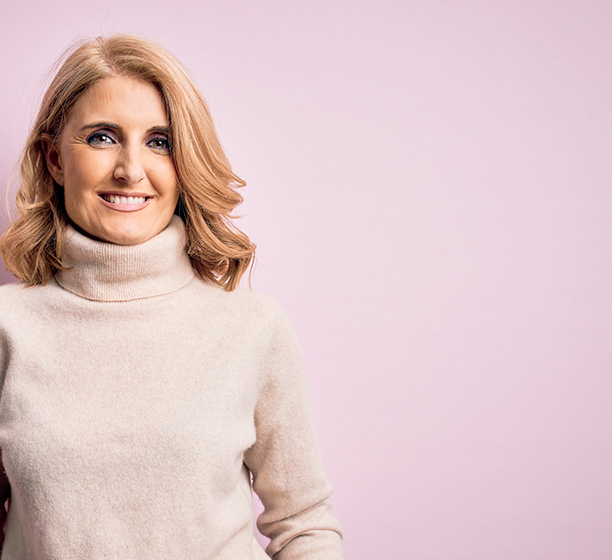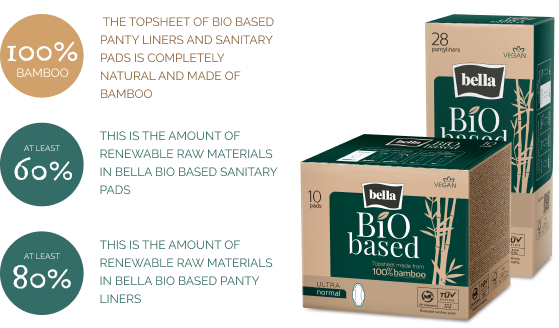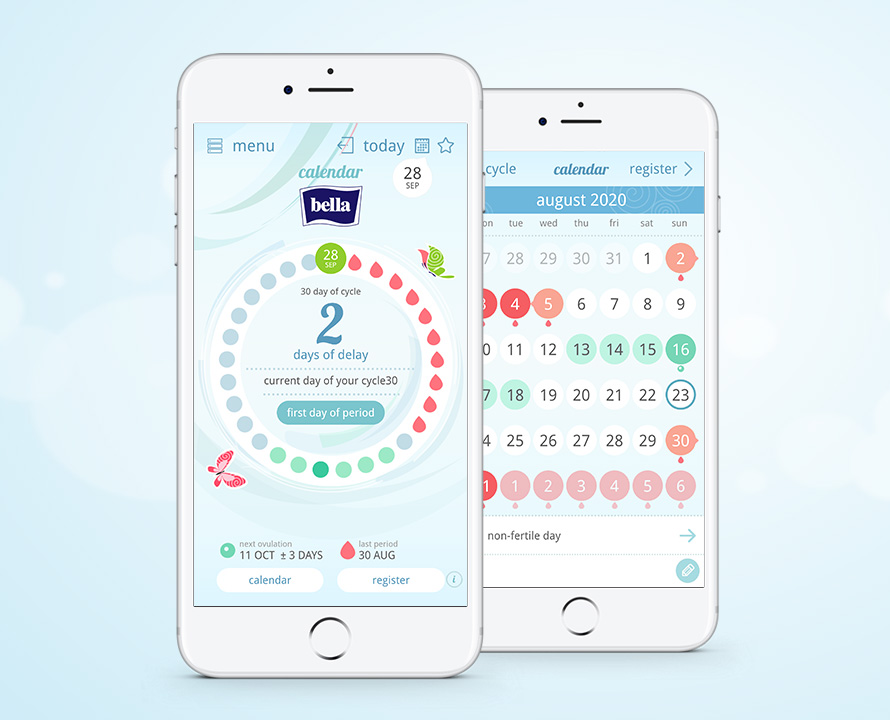 konfigurator
konfigurator
 Products
Products

Menstruation. How to be prepared.
Menstruation accompanies every woman from adolescence to menopause. It is nothing to be afraid of or embarrassed by. Your first period is a signal that you are growing up and your body is undergoing normal changes. Although you probably do not even think about it yet, the first menstruation is a signal that you will be able to have children in the future.
Menstrual cycle – how it works
 The first period (aka menarche) generally occurs between the age of 12 and 14. If you are very slim, your first period might occur a little later; before the ovaries start to produce oestrogens, your body needs to accumulate the proper amount of fatty tissue. Responsible for the entire process is the pituitary gland in your brain, which starts to produce the hormones: FSH (follicle stimulating hormone) and LH (luteinising hormone). Under the influence of FSH, a Graafian follicle starts to mature in your ovary and, along with it, an egg cell. Around the 14th day of your cycle, the Graafian follicle ruptures and the egg cell starts its journey in the fallopian tube towards the uterus. During this journey, LH transforms the structure of the ruptured Graafian follicle into an endocrine gland, the so-called yellow body. Yellow body is responsible for producing progesterone – a hormone responsible for the growth and softening of the endometrium. If you do not conceive during ovulation, the lining of the uterus is shed and is discharged outside through the vagina. As the lining of the uterus is shed, small blood vessels rupture. Such bleeding of the mucous membrane of your uterus is called menstruation
The first period (aka menarche) generally occurs between the age of 12 and 14. If you are very slim, your first period might occur a little later; before the ovaries start to produce oestrogens, your body needs to accumulate the proper amount of fatty tissue. Responsible for the entire process is the pituitary gland in your brain, which starts to produce the hormones: FSH (follicle stimulating hormone) and LH (luteinising hormone). Under the influence of FSH, a Graafian follicle starts to mature in your ovary and, along with it, an egg cell. Around the 14th day of your cycle, the Graafian follicle ruptures and the egg cell starts its journey in the fallopian tube towards the uterus. During this journey, LH transforms the structure of the ruptured Graafian follicle into an endocrine gland, the so-called yellow body. Yellow body is responsible for producing progesterone – a hormone responsible for the growth and softening of the endometrium. If you do not conceive during ovulation, the lining of the uterus is shed and is discharged outside through the vagina. As the lining of the uterus is shed, small blood vessels rupture. Such bleeding of the mucous membrane of your uterus is called menstruation
How long is a menstrual cycle?
The average menstrual cycle lasts 28 days. However, we are all different and some women have definitely shorter menstrual cycles, even 24 days, while other longer – 32 days. Remember that the occurrence of your first period does not mean that another one will occur exactly in one month. As long as you are growing up, the first menstruations can be very irregular. Even a couple of months may pass between the first and the next period.
The first day of your menstruation is the first day of the cycle. Ovulation, that is the release of an egg cell from the ovary, occurs usually in the middle of the cycle. It is a time when you can become pregnant if you have unprotected sex. If the egg cell is not fertilised, the body starts to prepare for shedding the lining of the uterus and then a menstruation occurs (also known as period). Menstruation lasts on average 3-5 days. Too heavy menstrual bleeding and prolonged periods are a signal that you need to see a doctor, as losing blood, you lose much iron, which can lead to anaemia
How to prepare for the first period? If you are afraid that your first period might catch you off guard, wear pantyliners, which, additionally, will help you maintain proper hygiene. A couple of months before your first menstruation, you might notice a white discharge from your vagina. It is a symptom of properly developing hormones. The first period might occur when you are out, but remember that menstruation is not a disease and you can function normally in spite of it. It is worth having a sanitary pad always with you, preferably an ultra-thin one so that you do not have to be afraid that it will be visible under tightly-fitting clothes.

Tips for teenagers
Learn more
Tips
for all
of us
Learn more

Tips in menopause
Learn more#DISPOSEWISELY!
On the packaging of products, such as sanitary napkins, panty liners and tampons, you can see the marking:


It is to clearly indicate where used hygiene products should go and illustrate the consequences of their improper disposal.
Thanks to proper segregation, we contribute to reducing the amount of waste of hygiene products thrown into toilets and, consequently, ending up in the seas and oceans.
Find out more
 Polski
Polski Angielski
Angielski Rosyjski
Rosyjski Czech Republic
Czech Republic India
India Lithuania
Lithuania Germany
Germany Romania
Romania Słowacja
Słowacja Ukraine
Ukraine Hungary
Hungary Austria
Austria Bułgaria
Bułgaria

